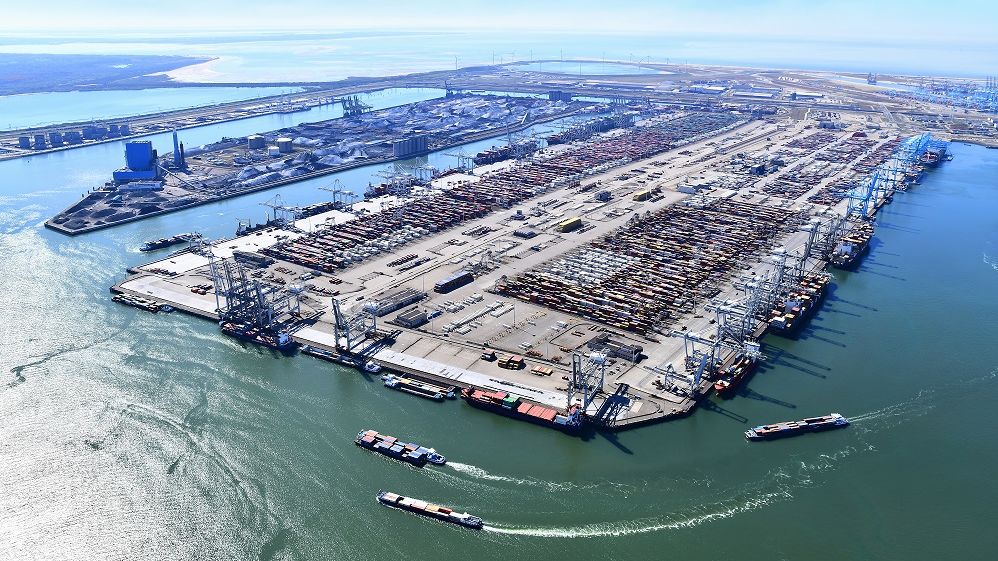 Hutchison Ports and Terminal Investment Limited Sàrl (TIL), the terminal investment company of Mediterranean Shipping Company (MSC), announced its intention to develop a new container terminal in the Europahaven, where the north side of the Hutchison Ports ECT Delta terminal and Hutchison Ports Delta II (the former APMT-R site) are located, in the area of Maasvlakte at the Port of Rotterdam.
Hutchison Ports and Terminal Investment Limited Sàrl (TIL), the terminal investment company of Mediterranean Shipping Company (MSC), announced its intention to develop a new container terminal in the Europahaven, where the north side of the Hutchison Ports ECT Delta terminal and Hutchison Ports Delta II (the former APMT-R site) are located, in the area of Maasvlakte at the Port of Rotterdam.
According to the plan, the terminal will consist of five deep-sea berths with a total length of 2.6 km.
“We are delighted that world class player MSC is committed to this renewal and significant expansion of the container handling in Rotterdam,” Allard Castelein, CEO of the Port of Rotterdam Authority said.
Both locations on the Delta peninsula are part of the new container terminal and will facilitate MSC’s ambitions for further growth. The Port of Rotterdam Authority will redevelop the quay walls for this project. The entire terminal will be developed and launched in phases and is expected to start the first phase of operation in 2027.
After its development, the new terminal is expected to provide a capacity of be 6 to 7 million TEU
“We are committed to the development of this new state of the art mega terminal in Rotterdam. Sustainability is a top priority for TIL and MSC. As the world’s largest container shipping company, we have a crucial role in creating a sustainable future. The possibility of utilising shore power is therefore an important consideration for the development of the new terminal. Elaborations on the shore-side power strategy for this project will be further explored with relevant stakeholders,” Ammar Kanaan, CEO of TIL said.
The new terminal will be equipped with automated systems to increase the productivity and is designed considering the sustainability concept.
The Port of Rotterdam is on its way to transform its energy sector to move from fossil fuels to renewable green energy. The port authority is focusing on accelerating and scaling up onshore power with a series of projects to make the port more sustainable. Its 2030 ambitious target is to match of at least 90% of the offshore, ferries, cruise and roll-on-roll-off ships and container ships to use onshore power by 2030. This will result in an emission reduction of approximately 200,000 tonnes of CO2 and 2,500 tonnes of nitrogen. This way, Rotterdam is taking steps towards an increasingly cleaner and future-proof port.
Share on:



